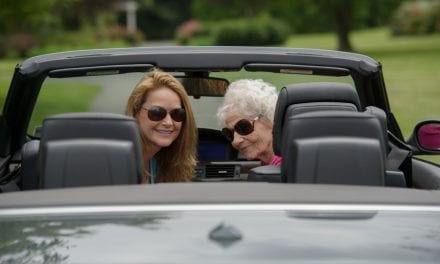We all pretty much agree that humans make mistakes. It’s inevitable. So, how you recover can create more goodwill than if everything had gone perfectly the first time!
By Pam McDonald
David C. Koelling, President of Strategic Dining Services, an integrated, hospitality-based dining management company and Senior Housing Forum partner, knows a customer service secret that could help senior living operators retain residents.
The secret? Customers who are highly satisfied with the way you respond to a problem will be more loyal than those who didn’t experience a problem in the first place. Counterintuitive? Maybe – at first glance.
But think about it. We all pretty much agree that humans make mistakes. It’s inevitable. So, how you recover can create more goodwill than if everything had gone perfectly the first time!
The trick, David points out, is to artfully recover from a mistake, urgently resume service, apologize for any inconvenience, and make amends by extending genuine hospitality. Of course, as with most things, this is much easier said than done.
Start with Dining Service, Move Beyond to A Hospitality Culture
David notes that in senior living, opportunities for service recovery in the dining department abound; services are often performed in the customer’s presence. Errors can range from overcooked vegetables to miscalculations on monthly statements. “Mistakes,” he says, “are a part of every service organization.”
Some problems can be handled even before they register with residents. David says, “For example, recognizing that a featured entrée will run out before the end of service will give you a tremendous edge in soothing residents prior to their ordering.
“Consider the conversation at a table when, as his tablemates’ food arrives, one resident finds out that they’re out of his choice. Service problems quickly escalate, so the opportunity to prove our commitment to our customers is fleeting, especially if we are at fault.”
Customer Service Recovery Solutions
David continues, “Some situations call for a gesture that clearly says, ‘We realize we made a mistake and we want to make it up to you.’” Set parameters for appropriate customer service recovery solutions, such as:
-
Flowers
-
Hand-delivered notes
-
Chocolates
-
Books by favorite authors
-
Special dinners
Train, Then Empower Staff
David believes that training can give staff the perspective that service recovery requires. He recommends that departments meet, discuss, plan and put potential solutions through a good – better – best test to come up with desired service recovery solutions.
He believes management needs to provide staff with tools, including standards, accountability, expectations, and innovation. David states, “We must empower staff to act. We must give them authority, responsibility, and incentives to attend to residents needs through well-established guidelines.”
He says, “In addition to following the rules and sticking to a routine, front line employees must be able to do the opposite; bend the rules, take initiative, and improvise. Building a strong team that can do both requires rigorous and conscious effort.”
He further recommends:
-
Developing a defined reward structure
-
Providing positive reinforcement
-
Publicizing good examples to inspire others
Senior living leaders who are able to attend California Assisted Living Association’s annual conference in Burlingame, California, can hear more from David at his session titled “Harnessing Hospitality in Your Dining Program and Beyond: The Art of Service Recovery” at 3:45 p.m. on June 6.
Contact Strategic Dining Services at (888) 406-1902 or visit their website at
Click on the button below to download a PDF copy of this article:










